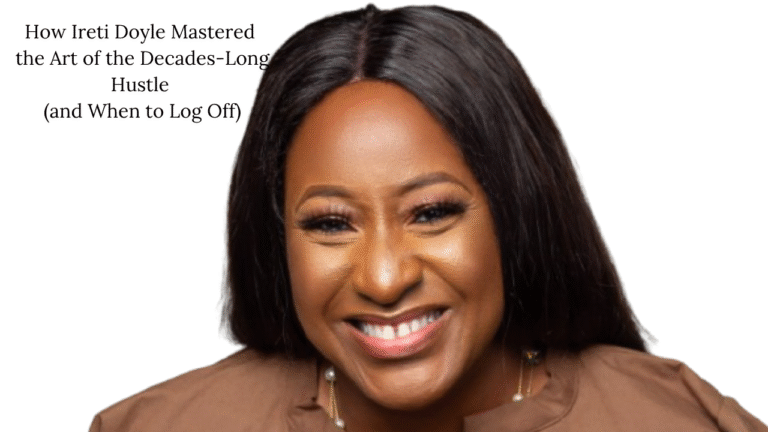
Defining Relationship: More Than Just a Word
What is a relationship, really? This question often arises when we think about the myriad connections we form throughout our lives. A relationship, at its core, is a bond or connection between individuals that can be categorized into several different types. Romantic relationships, for instance, evoke emotions of love, passion, and sometimes, conflict. They require ongoing communication and compromise, revealing their complexity and depth.
In contrast, platonic relationships are characterized by friendship and emotional closeness without romantic inclinations. These connections provide support, comfort, and joy, highlighting the importance of companionship in our daily lives. Familial relationships, encompassing bonds with family members, are foundational to our social fabric and greatly influence our emotional well-being from childhood through adulthood. Professional relationships, on the other hand, encompass interactions with colleagues or clients, often rooted in collaboration and mutual respect, and play a crucial role in our careers and professional development.
Understanding these connections is vital, as they shape our feelings, experiences, and perspectives. The renowned psychologist, Carl Jung, once noted, “The privilege of a lifetime is to become who you truly are,” emphasizing that the relationships we cultivate enable personal growth and self-discovery. Yet, not all connections are straightforward. Misunderstandings can arise. For example, consider two coworkers who enjoy banter during lunch breaks. One might perceive this as a budding friendship, while the other views it as mere cordiality. Such scenarios illustrate the varying interpretations of relationships that can lead to confusion.
Recognizing the different types of relationships and their significance allows us to navigate our personal and social spheres more effectively. This understanding promotes healthier interactions and enhances our emotional intelligence, fostering a more fulfilling social experience.
The Importance of Relationships in Our Lives

Relationships are fundamental to our existence, serving as the threads that weave the fabric of our lives. From early childhood to old age, the connections we form with family, friends, and colleagues greatly influence our personal development and overall happiness. Psychologically, relationships foster emotional support, which is crucial for coping with life’s challenges. According to a study conducted by the National Institute of Mental Health, individuals with strong social ties experience lower levels of anxiety and depression. This highlights how what is relationship, in essence, can significantly affect mental well-being.
From a sociological perspective, relationships facilitate socialization, allowing individuals to learn cultural norms and values, fostering a sense of belonging. Statistics reveal that people who engage in meaningful interactions are more likely to report higher levels of life satisfaction. For instance, research published in the Journal of Happiness Studies indicates that individuals in supportive relationships enjoy a 50% increase in happiness compared to those who are isolated. This statistical finding underscores the importance of nurturing what is relationship in various spheres of life.
Moreover, the anecdotal evidence gathered from user testimonials illustrates the profound impact healthy relationships have. One respondent noted, “Having friends who support me has been a game-changer; they lift me when I’m down and celebrate my wins.” This sentiment resonates with many, as relationships serve as a mirror reflecting our emotions and experiences. While navigating these connections can sometimes feel like a sitcom episode—filled with misunderstandings and humorous moments—therein lies the beauty of what is relationship. The ups and downs contribute to personal growth and resilience.
Ultimately, the integration of strong relationships into our lives not only enhances our mental health but also enriches our experiences, making the pursuit of meaningful connections essential for a fulfilling life.
Building and Maintaining Healthy Relationships
Healthy relationships are built on a foundation of effective communication, trust, and empathy. Understanding what is relationship dynamics is essential for fostering positive connections, whether they be romantic partnerships, friendships, or family ties. Below are practical strategies that can help in nurturing these relationships:
- Practice Active Listening: Ensure you fully understand your partner’s thoughts and feelings before responding. This demonstrates empathy and valuing their perspective.
- Express Appreciation: Regularly acknowledge and appreciate each other’s efforts. A simple “thank you” can strengthen bonds.
- Set Boundaries: Healthy relationships require respect for individual space. Clearly communicate your boundaries and be mindful of others’ limits.
- Be Honest: Transparency is crucial. Honest communication fosters trust and strength in any relationship.
- Resolve Conflicts Constructively: Instead of resorting to blame, focus on finding solutions together when disagreements arise.
However, it is important to identify and avoid common pitfalls that may jeopardize relationships:
- Lack of Communication: Silence can lead to misunderstandings. Make it a point to talk openly about feelings.
- Neglecting Needs: Paying attention to each other’s needs fosters a sense of security and mutual care.
- Taking Each Other for Granted: Small gestures of love and gratitude are vital for maintaining closeness.
Relationship dynamics can sometimes lead to humorous misunderstandings. Consider the quote: “I told my wife she was drawing her eyebrows too high. She looked surprised.” Such moments can lighten the atmosphere and encourage laughter, reinforcing the connection.
Additionally, balance and respect play crucial roles in what is relationship sustenance. A helpful way to visualize healthy versus unhealthy behaviors in relationships is through a comparative table:
| Healthy Relationship Behaviors | Unhealthy Relationship Behaviors |
|---|---|
| Open communication | Silent treatment |
| Mutual respect | Control over each other |
| Shared decision-making | Manipulation |
By implementing these strategies and remaining aware of potential pitfalls, individuals can cultivate and maintain healthy relationships that are grounded in trust, respect, and love.
Conclusion and Call to Action: Embrace Your Connections!
As we have explored throughout this article, understanding the essence of what is relationship reveals a complex web of interactions that shape our lives. Relationships, whether personal, familial, or professional, play a crucial role in our emotional well-being and overall happiness. By recognizing the different layers and dynamics involved in relationships, individuals can improve their connections and experience profound personal growth.
It is important to acknowledge the numerous benefits that come with nurturing our relationships. Strong connections can lead to increased support, enhanced communication, and a deeper sense of belonging. By prioritizing these essential ties, we can boost our mental health, foster resilience during challenging times, and cultivate a more fulfilling life. Reflecting on our own relationships allows us to identify areas for improvement and growth, paving the way for deeper, more meaningful interactions.
To encourage the development of healthier, more authentic relationships, we invite you to take action. Consider exploring resources such as insightful books, workshops focused on communication skills, or online courses dedicated to relationship building. These tools can equip you with valuable skills to enhance your understanding of what is relationship and help you strengthen your connections. Remember, investing time and effort into your relationships can yield significant rewards in your personal and professional lives.
Frequently Asked Questions About Relationships
What does a healthy relationship look like?
A healthy relationship is characterized by mutual respect, trust, open communication, and support. Both parties feel valued and are able to express their thoughts and emotions freely.
How can I improve my relationships?
Improvement can start with honest communication, actively listening to others, and being open to feedback. Engaging in shared activities and spending quality time together can also strengthen bonds.
Are all relationships meant to last?
Not all relationships are meant to last. Some connections carry significant lessons, while others may serve a purpose for a particular period in life. Understanding this can help you navigate relationships more effectively.






